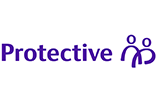online life insurance
- Get Quotes.
- Decide what’s best for you without having to deal with pushy insurance agents.
- Virtual agent tools are available to help you choose what life insurance policy is best for you and your family.
$500,000 Death Benefit
10 Year Level Term
$ 11.19 /MO

$500,000 Death Benefit
10 Year Level Term
$ 12.19 /MO

$500,000 Death Benefit
10 Year Level Term
$ 12.32 /MO
BUYING LIFE INSURANCE
ONLINE HAS ITS ADVANTAGES
- Convenience:Buying life insurance online is often more convenient than going through a traditional insurance agent or broker. You can easily compare policies and prices from multiple insurers, and complete the entire process from the comfort of your own home.
- Cost savings:Running quotes yourself allows you to compare rates from multiple insurers to find the best price.
- Easy access to information:When you buy life insurance online, you have easy access to information about the policies and coverage options available to you. You can easily compare policies and benefits, and find the right policy for your specific needs.
- Faster application process:Applying for life insurance online can be much faster than going through a traditional insurance agent or broker. Many online insurers offer a streamlined application process that can be completed in just a few minutes, and you can often receive a decision on your application within a few days.
- Ability to customize coverage:Online life insurance policies offer flexibility in coverage and customization. Choose the amount you need and add riders or additional coverage. Buying through PolicyWand is convenient, cost-effective, and efficient. Research and compare policies and prices from multiple insurers on one platform to find the perfect coverage for you and your loved ones.
No Medical Exam
Life Insurance
No exam life insurance, is a type of life insurance policy that does not require the applicant to undergo a medical exam as part of the application process. Instead, the insurer will use other methods to assess the applicant’s risk and determine their eligibility for coverage.
- No need to schedule a medical exam or wait for results.
- No exam life insurance policies can be approved much more quickly than traditional policies.
- Instant Quotes
- Apply Online
- Up to 10 million in Coverage
- No Medical Exam

life insurance calculator
Calculate how much life insurance you need
Learn how your family can use the benefits they will receive from your life insurance if you die.
Find out what type of life policy is best for your unique situation.

Input some basic information about yourself, income, and financial obligations.
HOW IT WORKS

Our calculator uses a set of formulas and assumptions to estimate how much life insurance coverage you may need.

The estimate helps you determine what type of life insurance policy to purchase and how much coverage to include in your policy.
live agent support
- If you need a live agent, PolicyWand has you covered. Our PolicyWand agents are not paid a commission. So if you have questions our agents have the answers that best suit your needs.
- Call Toll Free: 1-888-530-WAND(9263)
- Email: info@PolicyWand.com

Here are some of the areas where our Live Agent Support stands out from the rest:
Complex
Our Agents are licensed, making them better equipped to handle complex or nuanced issues that may require more in-depth understanding or problem-solving.
Empathy
Our agents are trained to provide emotional support to customers, which can be especially important in sensitive or emotional situations.
Personalization
PolicyWand agents tailor their responses to your specific situation, which can lead to a more positive customer experience.

Our live agent support is the best in the industry because our non commissioned licensed agents are trained to assist you in a none sales oriented manner. This means their advice and guidance is strictly objective to your needs and goals.
We prides ourselves on maintaining the highest level of customer satisfaction through providing you with an experience, personalized, and empathetic care approach during the insurance buying process.
meet wandy
- Our Virtual Agent Wandy can help you calculate how much death benefit you need.
- Wandy can help you figure out what type of Life Insurance is right for you and your family.
- Wandy can evaluate your health history and provide you with accurate quotes.


Meet Wandy, our virtual agent powered by AI technology. Wandy was exclusively designed by our licensed life insurance agents to engage in conversations with users when our live agents may not be available. Using natural language processing (NLP) and advanced machine learning algorithms, Wandy can interpret user input and provide responses to frequently asked questions, offer personalized recommendations, or guide you through various processes.
Our commitment to providing exceptional customer service and streamlining the life insurance process drives us to continually improve our services. As such, Wandy is always learning, and we are constantly working to enhance your interactions with him.

apply online
- Pick your policy and apply online in minutes.
- Secure Online Portal keeps your information safe and secure.
- 24/7 access to your policy documents.
Take the First step
- Applying for life insurance has never been easier with PolicyWand.
- The process is completely free, and there’s no obligation to complete the process or purchase a policy after you’re approved.
- Apply with confidence and take the first step in securing your future today.

online application process
- Run your quotes and decide on the policy you want.
- Start the online application process by answering a few simple questions.
- Complete the application via the carrier’s secure portal.
- Track the status of your application in real-time through the PolicyWand secure client portal.

application Approval
Approval time varies based on factors such as the carrier you choose, your overall health history, and the type of policy you’ve applied for.
Typically, it can take anywhere from a few hours to a few weeks. But don’t worry, our live agents are available to answer any questions you may have during the process.






